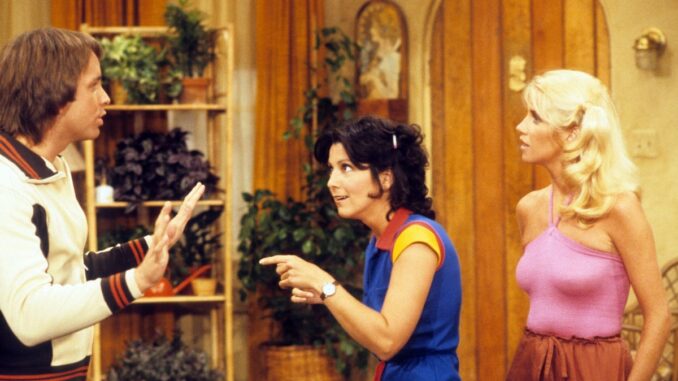
The Legacy of Suzanne Somers’ Fight for Equality
When you think about Suzanne Somers, her iconic role as Chrissy Snow on Three’s Company might come to mind. But beyond her dazzling smile and comedic timing lies a deeper story—one of resilience, determination, and an unwavering fight for fairness.
Her battle for equal pay didn’t just shake the entertainment industry—it became a landmark moment in Hollywood’s ongoing quest for gender equality. Let’s take a deep dive into how Suzanne Somers stood her ground and reshaped the narrative for women in showbiz.
Understanding the Gender Pay Gap in Hollywood
The gender pay gap in Hollywood isn’t just a myth—it’s a harsh reality. For decades, actresses were paid significantly less than their male counterparts. Suzanne Somers wasn’t the first to notice this imbalance, but she was one of the first to take a bold stand against it.
A Quick Look at ‘Three’s Company’
‘Three’s Company’ debuted in 1977 and quickly became one of the most-watched sitcoms on TV. With John Ritter, Joyce DeWitt, and Suzanne Somers as the main cast, the show was a massive hit.
But behind the laughter and applause, a different story was unfolding—a story of inequality that would soon take center stage.
Suzanne Somers’ Realization
As the show gained popularity, Suzanne discovered that her male co-star, John Ritter, was earning significantly more. While she contributed equally to the show’s success, her paycheck didn’t reflect her worth.
The Decision to Demand Fairness
The Turning Point
In 1980, Suzanne made a courageous decision. Armed with the support of her husband and manager, Alan Hamel, she decided to demand equal pay—a groundbreaking move at the time.
The Proposal
Somers asked for a raise to match John Ritter’s salary and requested 10% ownership of the show’s profits. This wasn’t just about money—it was about making a statement that women deserved to be valued equally.
The Fallout of Speaking Up
The Industry’s Reaction
Unfortunately, Suzanne’s demands were met with resistance. Rather than renegotiate, the network labeled her as “difficult” and effectively pushed her out of the show.
The Aftermath
Her character, Chrissy Snow, was written out of the series, and Somers was left grappling with the fallout of her decision.
Suzanne Somers’ Resilience
From Actress to Advocate
Instead of letting the rejection define her, Suzanne used it as fuel. She pivoted her career, becoming a successful entrepreneur, author, and health advocate. Her ability to reinvent herself became a testament to her strength.
A Symbol of Courage
Over time, Suzanne’s battle for equal pay transformed her into a symbol of courage and empowerment. Her story inspired other women in Hollywood to speak up and demand their worth.
The Broader Impact on Hollywood
A Wake-Up Call for the Industry
Suzanne’s stand forced Hollywood to confront its systemic gender biases. While progress was slow, her fight laid the groundwork for future discussions about pay equity.
The Ripple Effect
Today, stars like Jennifer Lawrence and Viola Davis openly discuss pay disparities, continuing the work Suzanne Somers began decades ago.
Lessons We Can Learn from Suzanne’s Journey
- Know Your Worth: Suzanne’s story reminds us to never settle for less than what we deserve.
- Be Bold: Change doesn’t happen without courage. Sometimes, speaking up means risking it all.
- Resilience Pays Off: Suzanne’s career flourished in ways she never imagined, proving that setbacks can lead to greater opportunities.
Why Suzanne’s Fight Still Matters Today
The conversation about gender pay equity isn’t over. Suzanne Somers’ story remains a vital reminder that progress is possible—but only if we keep fighting.
Conclusion
Suzanne Somers’ battle for equal pay on Three’s Company was more than just a fight for fair compensation—it was a stand for respect, equality, and justice. Her courage paved the way for countless others to demand their worth, not just in Hollywood but in every industry.
Her story isn’t just about a sitcom star—it’s about a trailblazer who refused to back down. Suzanne’s legacy reminds us all that sometimes, the biggest laughs come from the most serious battles.
FAQs
Q1: Why did Suzanne Somers leave Three’s Company?
A: Suzanne left the show after her request for equal pay was denied, and her contract was not renewed.
Q2: How much was Suzanne Somers paid compared to John Ritter?
A: While exact figures vary, it’s reported that Suzanne was paid significantly less than John Ritter despite being a co-lead.
Q3: Did Suzanne Somers regret her decision to demand equal pay?
A: Suzanne has stated that she doesn’t regret standing up for herself, as it aligned with her principles.
Q4: How did Suzanne Somers’ career evolve after Three’s Company?
A: Suzanne became a successful entrepreneur, author, and advocate for health and wellness.
Q5: What is Suzanne Somers’ legacy in Hollywood?
A: Her fight for equal pay is a milestone in Hollywood’s journey toward gender equality, inspiring others to demand fairness.
